REGULATIONS FOR ADMINISTERING CAMBRIDGE EXAMS
Pursuant to Article 36 of the Statute of Savremena International School, the School Board of Savremena International School at the meeting held on 29 August 2016 adopted the following:
REGULATIONS FOR ADMINISTERING CAMBRIDGE EXAMS
CONTENT
Article 1
The Regulations are intended to regulate the conditions and manner of taking exams for Cambridge Secondary 2 (IGCSE) and Advanced level (AS/A levels) exams (hereinafter: exams), the exam timetable, the marking scheme, as well as other issues relevant to the exams.
EXAM PROGRAMME
Article 2
The exams mentioned in Article 1 shall take place at Savremena International School (hereinafter: the School) in accordance with the Cambridge International Examinations programme.
EXAM ENTRY
Article 3
Exam entries are submitted to the School, in accordance with Cambridge International Examinations rules, in February for the May series, and in June for the November series. The exact deadline for submitting exam entries is determined by Cambridge International Examinations.
If an exam entry is submitted after the deadline mentioned in paragraph 1, a late entry fee will be charged as determined by Cambridge International Examinations.
Article 4
Exam applications can be submitted at least one day before the first exam takes place according to the Cambridge International Examinations timetable, in the series for which the applications are submitted.
EXAM TIMETABLE
Article 5
Exams take place in the May and November series.
The exam timetable is determined by Cambridge International Examinations.
The timetable from paragraph 2 is published on the Cambridge International Examinations website and cannot be altered upon the request by the students or their legal representatives.
RETAKE EXAMS
Article 6
Students who fail to pass an exam or are not satisfied with their grades may retake the exam in the subsequent series, at their expense, in accordance with the fees list determined by Cambridge International Examinations.
EXAM ADMINISTRATION
Article 7
Exams are taken exclusively at the School premises.
Exams are administered in accordance with Cambridge International Examinations regulations.
Exams are taken in the form of oral and written exams, in the presence of a person supervising the exam. The aforementioned person is a Cambridge Exam Officer, i.e. person appointed at the School.
Cambridge International Examinations rules and regulations are published on the Cambridge International Examinations website.
MARKING
Article 8
Exams are marked in accordance with the marking scheme determined by the Cambridge International Examinations regulations. The School cannot in any way influence the marking scheme.
DIPLOMA
Article 9
After reviewing the exam documentation, Cambridge International Examinations shall issue the Statement of Results, as well as the official diploma. The School cannot in any way influence the issuing of said documents.
EXAM REQUIREMENTS
Article 10
Students are eligible to take the exams mentioned in Article 1 provided they pass the threshold of 40% at mock exams.
Mock exams mentioned in paragraph 1 are intended to assess how prepared the students are for taking Cambridge Secondary 2 (IGCSE) and Advanced level (AS/A levels) exams.
Mock exams mentioned in paragraph 1 are organised and carried out by the School.
Article 11
Mock exams mentioned in Article 9 take place in February, March and April for the exams in the May series, and in June, September and October for the exams in the November series.
The School shall determine the timetable for mocks exams. The School is obliged to notify the students and their legal representatives about the time and date of the mock exams via email, 7 days before the exams take place.
If a student passes the threshold mentioned in Article 9 in February or June mock exams, the legal representative shall not pay the entry fees mentioned in Article 3.
If a student earns the required number of points mentioned in Article 9 in the March or April, i.e. September or October series, the legal representative shall pay the late entry fees mentioned in Article 3.
EXAM FEES
Article 12
The fees for one exam sitting in the May or November series for Years 11, 12 and 13 are included in the tuition fees for said years.
If a student has failed to attend or pass an exam, or if they are not satisfied with their grade, they may retake the exam in the subsequent series whereby the exam fees shall be paid by the legal representative.
The exam fees for the cases mentioned in paragraph 2 are determined by Cambridge International Examinations.
FINAL PROVISIONS
Article 13
The Regulations shall come into force eight days upon their publication on the School notice board.
The President of the School Board: ___________________________
Nikola Subotić


















